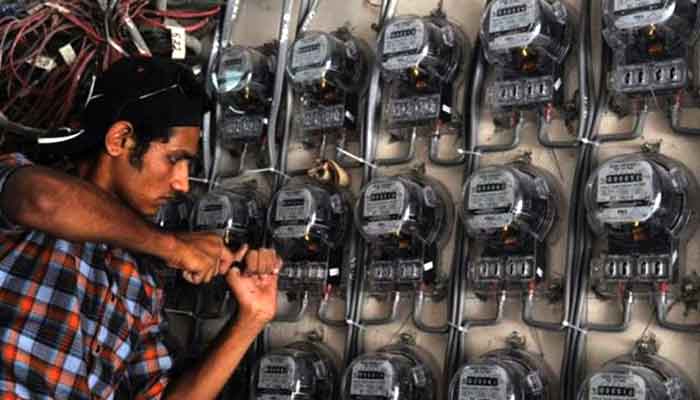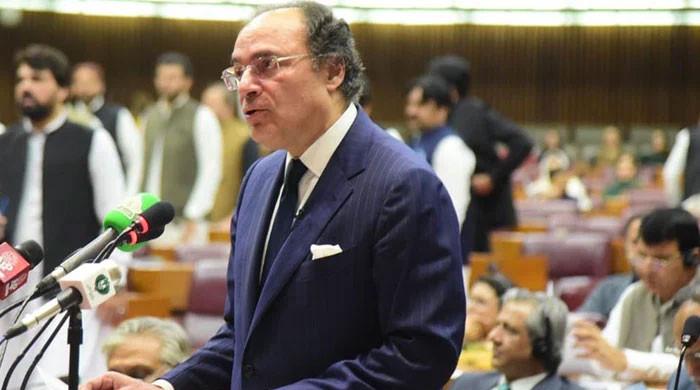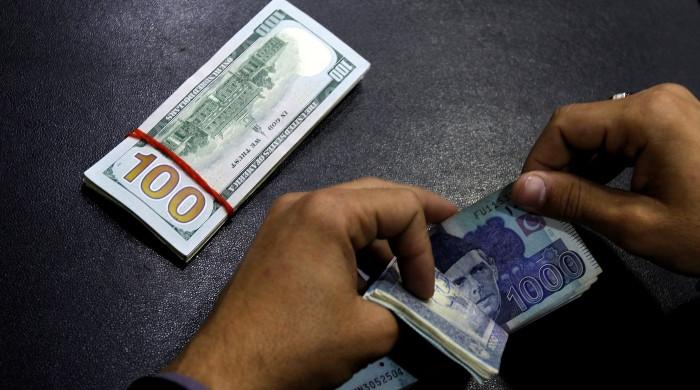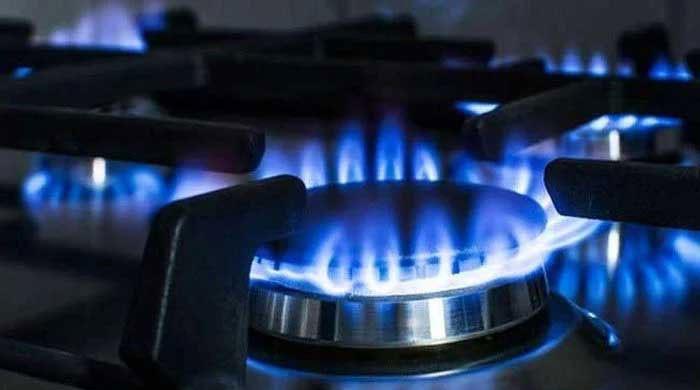More burden on inflation-weary masses as base power tariff hiked to Rs4.96/unit
End electricity consumers virtually being fleeced to cover up unending inefficiencies in power sector
July 15, 2023

- Move comes on IMF's demand.
- Govt to collect Rs3.281 trillion.
- Govt also working to increase gas rates.
ISLAMABAD: The National Electric Power Regulatory Authority (Nepra) on Friday announced a significant rise of Rs4.96 per unit in the electricity base tariff for FY24 on the International Monetary Fund's (IMF's) demand.
After the move, the government will collect Rs3.281 trillion from power consumers across all distribution companies.
Moreover, the government is also working on increasing gas rates as the Oil and Gas Regulatory Authority (OGRA) has already determined a 45-50% increase in gas prices on June 2, 2023.
The implementation of the decision on the power tariff hike is set to begin on July 1, with the tariff rising to Rs29.78 per unit from the current Rs24.82/unit.
The consumers, who use the ToU (time of use) meter, would pay up to Rs49.35 per unit. They will now pay Rs49.35 per unit during the peak hours of 5pm to 11pm and Rs33.03 for out-of-peak hours.
The decision has become double jeopardy for Karachiites as Nepra has also increased the monthly fuel charges adjustment of the month of May by Rs1.44 per unit, which will appear in the billing of July.
However, the increase in base tariff will be passed on to all categories differently.
Some categories will face less increase, while for some the increase may go up to Rs6 per unit, depending upon the government's decision.
The power regulator has determined the average increase in base tariff by Rs4.96 per unit.
Apart from the new base tariff of Rs29.78 per unit, the end consumers will also pay a financing cost surcharge of Rs3.23 per unit from July 1 to generate Rs335 billion to finance the power sector's debt and liabilities, which stands at Rs2.6 trillion.
In addition, they will also continue to pay the Tariff Rationalization Surcharge of Rs0.47 per unit.
In the increase of base tariff of Rs4.96 per unit, the capacity charges payment's share has increased to 70%, which is 3.472 per unit, and 30% is energy price.
The new base tariff increase has been calculated at a dollar value of Rs287, inflation at 17% and electricity generation growth at 7%. The consumers will pay capacity charges in the tariff of Rs1.874 trillion, which was at Rs1.251 trillion in 2022-23.
The end electricity consumer in Pakistan is virtually being fleeced to cover up the unending inefficiencies in the power sector apart from paying the actual cost of electricity.
They are also being charged tariff rationalisation, financing cost surcharges, electricity duty, PTV license fee, GST, income tax, extra tax, further tax, and sales tax.
A consumer actually pays 31% in addition to the actual cost of the electricity in the shape of surcharges, duties and taxes.
Electricity Duty, a provincial duty, has been levied on all consumers ranging from 1.0% to 1.5% of Variable Charges, General Sales Tax (GST) is charged under Sale Tax Act 1990 on all consumers at the rate of 17% of the electricity bills.
Income Tax is charged from consumers who are non-taxpayers at various rates depending upon applicable tariff and the amount of electricity bill and 5% to commercial consumers on bills up to Rs20,000 and 7.5% on bills exceeding Rs20,000.
Further tax is being charged at the rate of 3% from all consumers — having no Sales Tax Return Number (STRN) except domestic, agriculture, bulk consumers, and street light connections.
The increase in power tariff was a crucial requirement imposed by the IMF in order to provide financial assistance to Pakistan.
The IMF has consistently urged the government to raise the tariff and eliminate power subsidies as part of efforts to reduce the country's fiscal deficit.
However, Nepra attributes the tariff increase to factors such as low sales growth, rupee devaluation, high inflation, exorbitant interest rates, and the addition of new capacities.
The projected total revenue requirement for the distribution companies in the fiscal year 2023-24 is estimated to be Rs3.281 trillion, with projected sales of 110,165 GWh.
During the previous financial year, the base tariff was increased by Rs7.91 per unit, impacting Rs2.8 trillion, but it was implemented in three stages at intervals.












